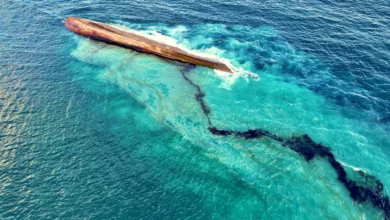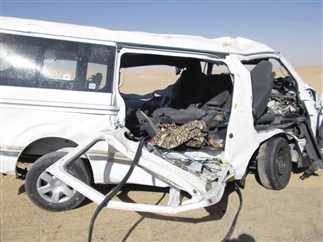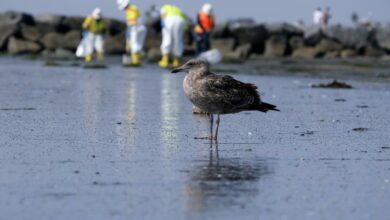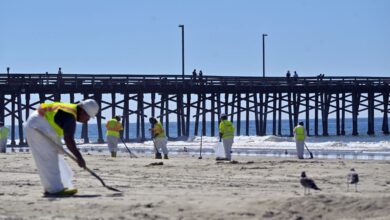The Habi Center for Environmental Rights filed a complaint last Sunday at the prosecutor general’s office to demand an investigation into the government’s inability to deal with the recent Edfu oil spill.
A five-kilometer-long oil spill was discovered in Edfu, a city located 100 kilometers north of Aswan, on 26 October. The spill reached the Hawamdeya purification station in Giza causing 12 drinking water facilities to shut down, said Mohamed Mahdy Mohamed, the center’s lawyer.
“We want to hold the prime minister’s office; the Ministries of Water and Irrigation, Health, Environment and Tourism; the coastal police; and Aswan Governorate accountable for their failure to identify the polluter and organize a quick response,” Mohamed said.
When Egypt Independent asked the Environment Ministry about a possible investigation into the oil spill, representatives said there is no investigation, adding that the oil spill has been removed, so the case is closed.
“This impunity means such oil spills will continue to happen, while it also calls into question the government’s ability to both oversee the certification of factories, and to ensure that non-compliant factories are being shut down,” Mohamed said.
Ahmed el-Droubi of Greenpeace Arab World explains that the Health, Environment, and Water and Irrigation Ministries are supposed to have monitoring tools, but that they lack people and funds.
“They have 200 monitoring stations but don’t have the budget to analyze the water samples they collect, and if the oil spill was not caused by factories, the pollution can be hard to trace,” he adds.
People still discharge their garbage into the Nile because their villages lack proper sanitation, and fertilizers also leak into the river. Droubi says these two practices have a big impact on water quality.
But in this particular case, Droubi thinks it shouldn’t be complicated to find the perpetrator, if it were not for the obstruction created by the government itself. What usually happens, he says, is that the responsibility is divided between many ministries, so the issue can be moved back and forth between them without anyone actually assuming responsibility.
Often, when younger employees try to stand up to polluters, they get overruled by their superiors and are asked not to talk about it, “so eventually the case disappears,” Droubi says.
“In the government’s view, investment and economy are day-to-day issues, while the environment is a luxury,” he says. “If you look at it this way, you will kill everything, including the farmers’ livelihoods.”
Mohamed hopes his complaint will compel the prosecutor general to open an investigation into what went wrong.
As of now, there is no estimate of the amount of damage caused by the oil spill on the Nile fish population or the crops irrigated with this water. But the Habi center is hoping that, through its official complaint and registering citizens’ complaints, an investigation will be opened and finally shed light on what happened.
This piece was originally published in Egypt Independent's weekly print edition.




